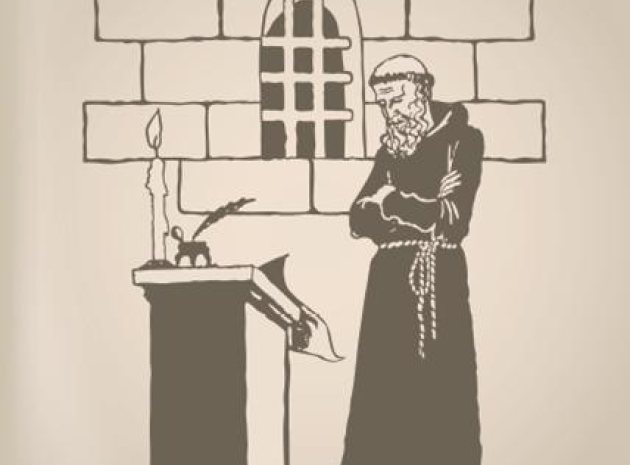Simon Schama once said that British history moves at a glacial pace. Little changes, revolutions do not seem to happen in our green and pleasant land. The same could be said for GCSE history. For over twenty years teachers of the subject have been confidently covering the same GCSE topics year on year. Little in terms of content has actually changed. Roughly 65% of schools have been teaching a Modern World /20th Century course. You know the drill, The Nazis, Russia, America, The Cold War… The rest of us have taught a Schools History Project course covering a thematic overview: Medicine or Crime and Punishment Through Time, alongside a depth study like The American West or Germany in the 1920s and 1930s. Inevitably these examinations have evolved: coursework has become controlled assessment; test questions have subtly developed. But overall we know where we are when it comes to GCSE. Or we did. Brace yourself. Sit up and take notice, because from September 2016, new GCSE history courses are to be taught and everything changes.
What’s the difference?
Say hello to loads of choice, wave goodbye to just 20th century history and turgid source papers. In April 2014 it was agreed by the DFE that the scope of GCSE history specifications would have be:
• from three eras: Medieval (500-1500), Early Modern (1450-1750) and Modern (1700-present day)
• on three time scales: short (depth study), medium (period study) and long (thematic study)
• on three geographical contexts: a locality (the historic environment); British; and European and / or wider world settings
British history must form a minimum of 40% of the assessed content over the full course. They also require students to:
• recall and understanding knowledge
• focus on second order concepts
• use sources critically
• understand historical interpretations including how and why they differ
There is no controlled assessment, so its 100% exam at the end of the course. And, GCSE grades A*-G will be replaced by a ranking system from 9-1.
Clearly history teachers across the country have got some important choices to make. On our website we have been tracking these changes carefully with regular video and written blogs. The 4 main examination boards, AQA, Edexcel, OCR and WJEC have all interpreted the content and assessment very differently. Their specifications and assessment materials are still in draft form at the moment. Be in no doubt that a Key Stage 4 revolution is about to happen and history teachers need to decide which exam board is right for their students.
How is the content similar across the exam boards?
Different exam boards are offering some topics that appear to be the same. For the thematic study, AQA, Edexcel and OCR B are offering Medicine / People’s Health Through Time. Edexcel and OCR B are offering Crime and Punishment Through Time, AQA and OCR A are offering power through time, and OCR B and AQA are offering Migration Through Time. When it comes to the British Depth study AQA, Edexcel and OCR B allow a Norman or an Elizabethan unit. All exam boards offer Germany in the 1930s, Russia century and USA in the 20th as a wider world unit.
How is the content different across the boards?
There is an awful lot of choice across the exam boards too. If you wanted to study familiar Modern World topics such as conflict and tension / international relations then OCR /A or AQA seem to be the boards to go for. If you want a diverse course covering either the Vikings, the Mughals and the Aztecs then OCR B could be the choice for you.
The devil in the detail
History teachers need to look really carefully at the amount of content that is prescribed and they should note the time periods for different units too. What seems to be the same topic provided across exam boards actually can be very different. The Norman Conquest could be a popular choice. Three boards are covering this, yet they start and end at different points!
• 1066-1100 AQA: Norman England
• 1060-88 Edxecel: Anglo Saxon and Norman England
• 1065-87 OCR B: Norman Conquest
If you were going to choose a USA course that covers post World War 2 content, then you need to be very careful. OCR/A and Edexcel courses all have major differences and some have some striking omissions. They do agree on some things; as you would expect, for example, they all cover The Civil Rights and Racial Tension. But then they seem to go their separate ways. The Edexcel course goes into major detail about Vietnam, the others do not. OCR/A has lots of detail about political dissent in 1960s America and the others do not. This is all very confusing and it happens across most ‘similar’ topics.
When it comes to teaching the environment the only exam board that insists on a site visit and allows you to design your own course here is OCR B.
Resourcing
As you can imagine, changes like this are a publisher’s dream. Author teams are presently working hard to provide books on nearly all of the new topics. Whether they will all ready for September 2016 is another matter. Our website will be creating resources to cover many topics too. Teachers need to review all of these resources when they appear, as some authors have taken a more knowledge based approach to their work, whilst other teams are looking to make learning visible and provide activities that work in the classroom.
Decision time
It’s clear that overall, teachers have some important decisions to make. As ever, it’s worth taking time and thinking about which approach is going to be best for you and your students. Here are my tips to help guide you:
• Make your decision based on what course you think provides the best history for your students.
• Take time to read all of the draft specifications and assessment materials provided by all examination boards. l Do not stick with your present exam board expecting things to stay the same.
• Attend the training offered by all examination boards, or a one day course aimed at helping you make the correct choice.
• Read the www.historyresource cupboard.com blog as we will be reviewing and commenting on all things new GCSE.
• Review the teaching materials and resources when they become available.
• Keep an eye on the examination board websites as they provide new information all of the time.
Assessment
At the time of writing Ofqual has yet to approve the assessment materials and all examination boards are currently working hard to amend their draft materials. One of the trickiest aspects of examining history will be how to approach the assessment of historical knowledge and interpretations. The proposed examination questions from different boards varied greatly here. The mark allocation also varies hugely. Some questions are worth 1 or 4 marks, others are worth 22 marks.
About the author
Richard McFahn is a part time history consultant and creator of the popular website www. historyresourcecupboard.com, which provides teaching materials and advice to history teachers. Richard is also Head of Humanities at Fort Hill Community School in Basingstoke.









